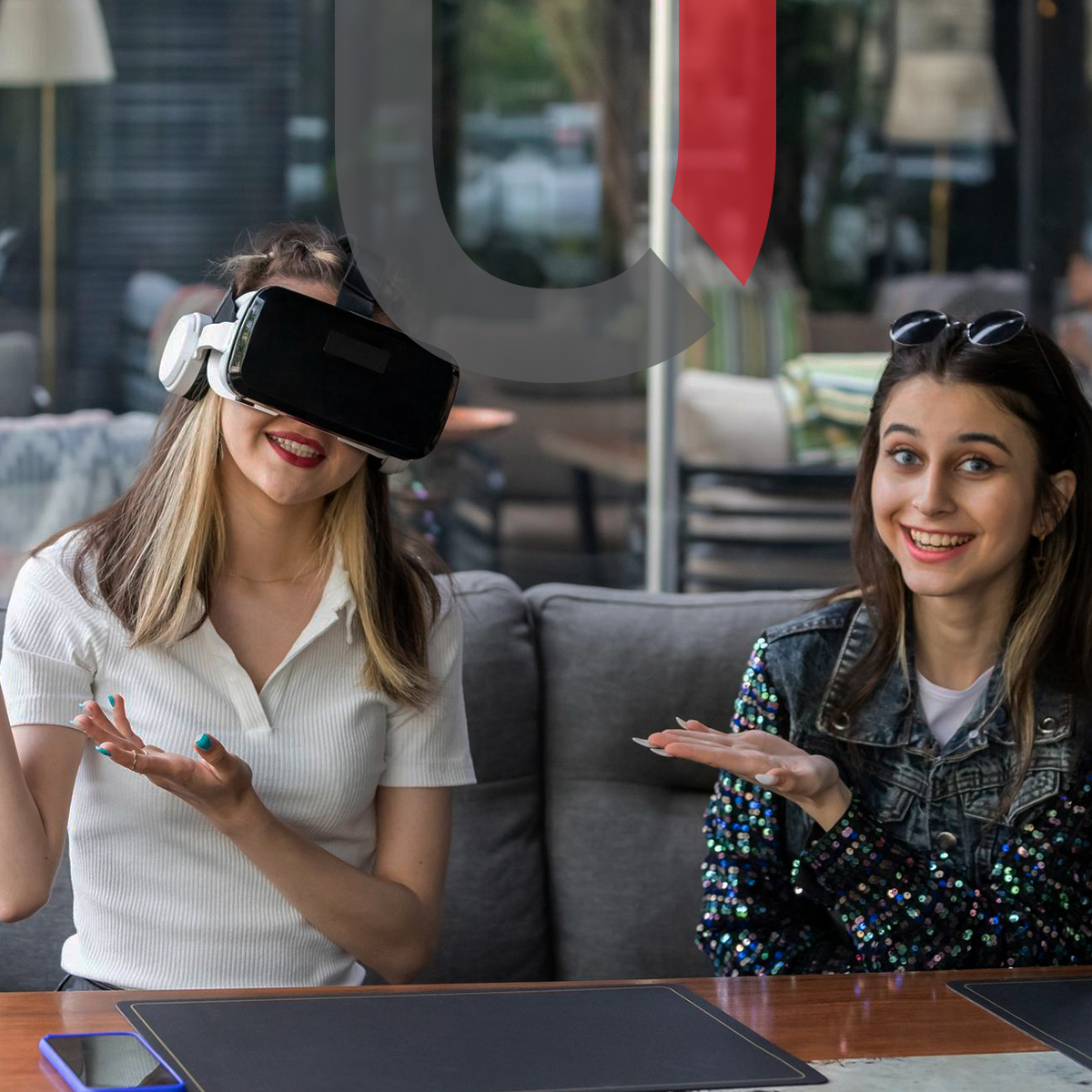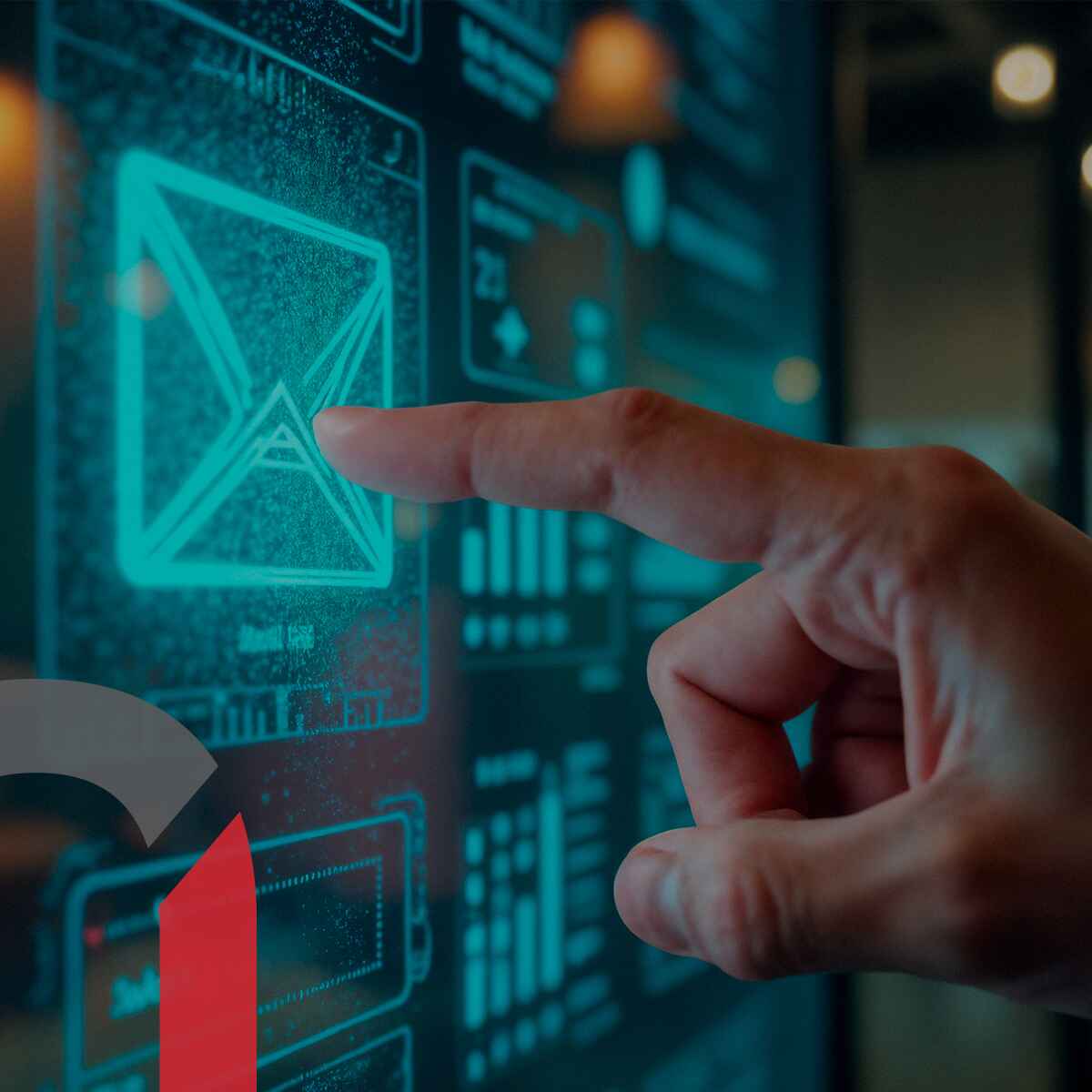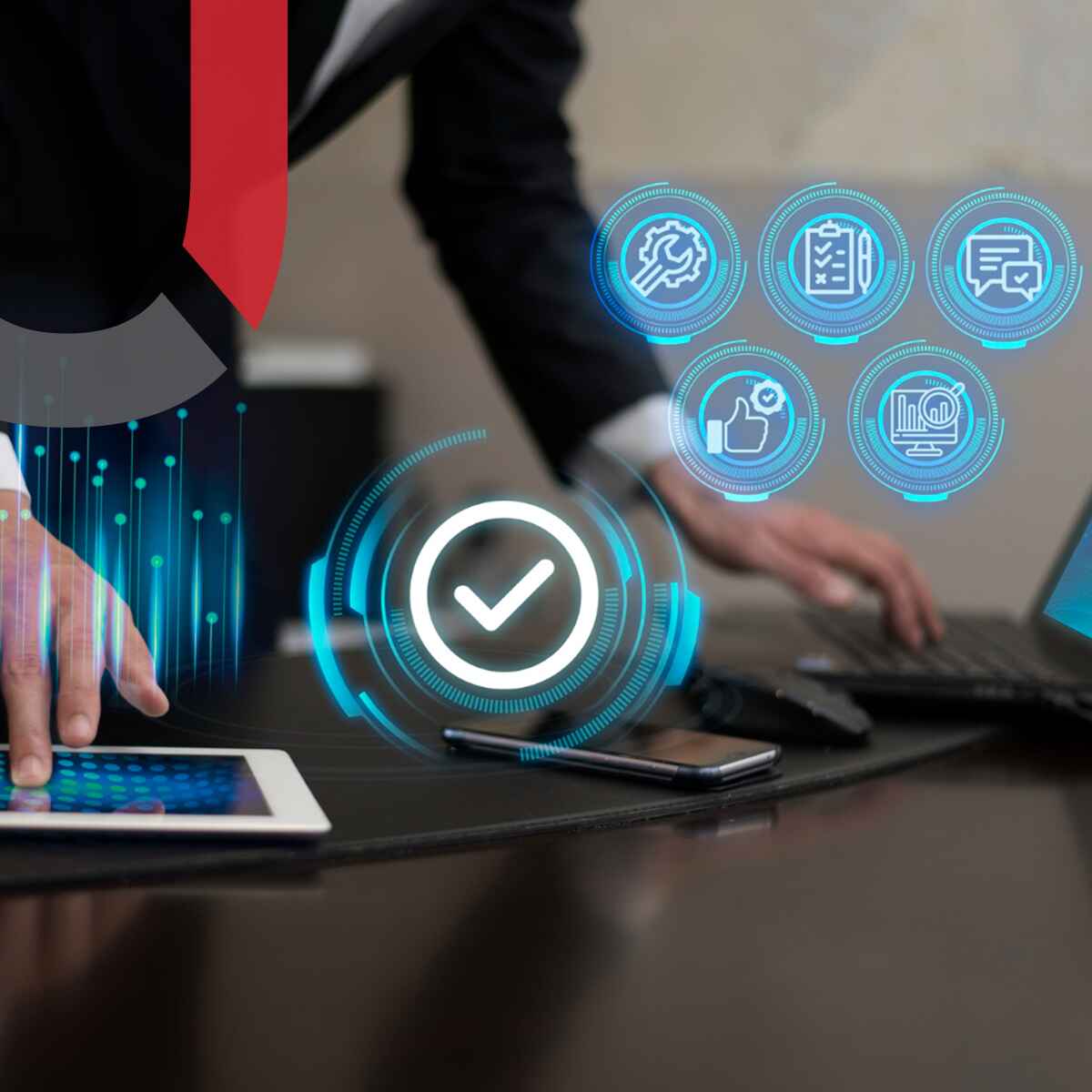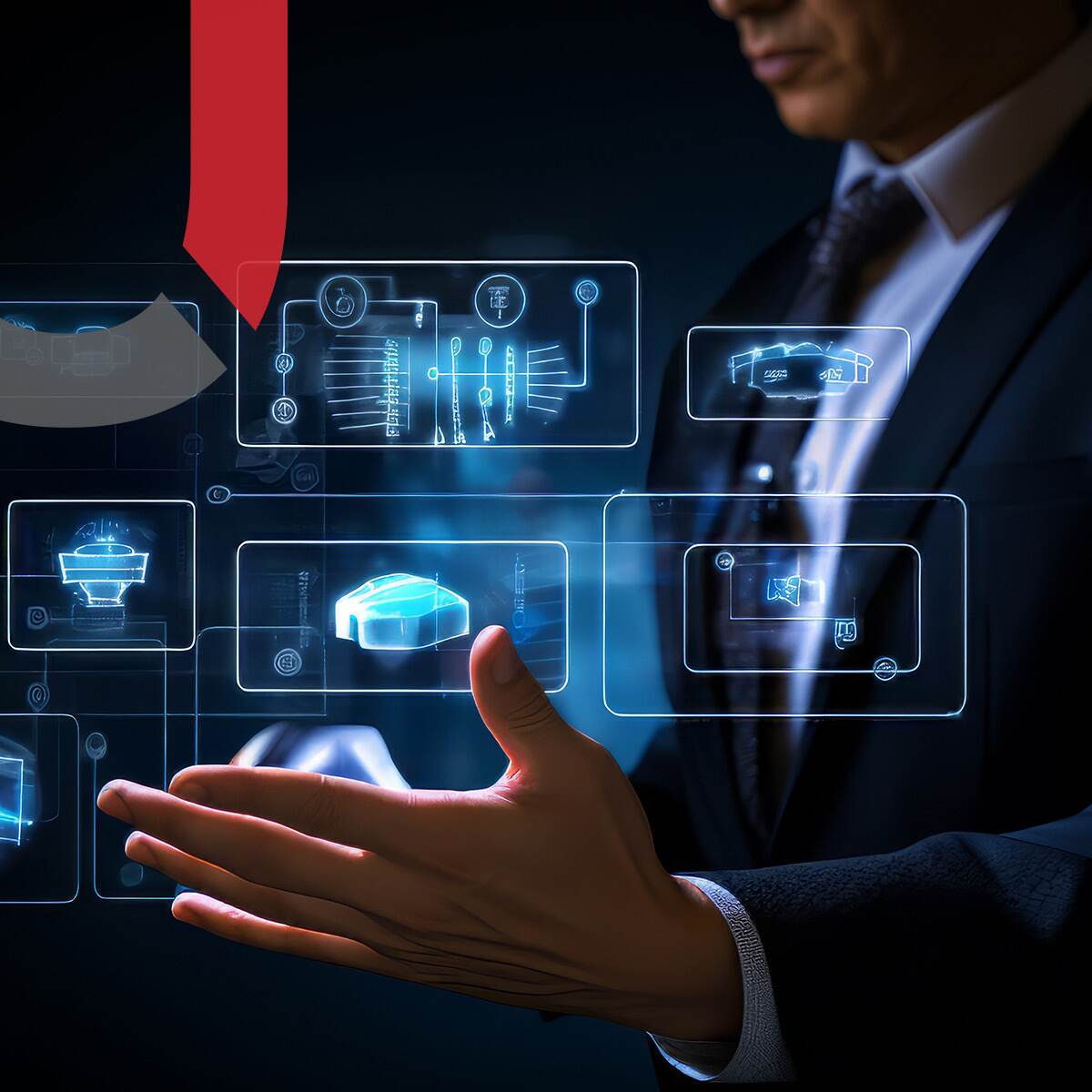Did you know that 78% of B2B buyers expect to get more personalized interactions from brands (Demand Gen Report)? This statistic highlights the growing demand for dynamic and customized experiences in the B2B space. In this fast-evolving landscape of B2B, keeping up with technology is no longer enough. You need to turn your transactional methods into transformational experiences with the help of immersive technologies. The future of B2B client engagement is continuously evolving, and to stay ahead, businesses need to adapt to these changes.
It’s time to reimagine your B2B client engagement by integrating immersive technologies into your marketing strategy and creating a landscape where “innovation meets impact.”
Strategies to Integrate Immersive Technology in B2B Marketing
With rapid advancements taking place in the B2B metaverse applications, the integration of AR and VR seems essential to give you an edge to gain B2B client engagement in 2025. Gartner predicts that by 2026, 25% of people will spend at least one hour a day in the metaverse for work, shopping, education, or social interactions.
Here, we have listed strategies to leverage to integrate immersive technology with your B2B marketing strategy.
Virtual Showrooms and Their Product Demos
According to Deloitte’s 2023 survey with over 800 participants, 98% of respondents started their digital transformation journey, a significant growth from 78% in 2019. This shift is primarily driven by the need to enhance customer experience, reduce costs, improve operational efficiency, and innovate or refine existing products. AR and VR for client engagement allow the creation of virtual showrooms where customers can explore and experience products or services in a 3D environment. In the B2B industry, enabling immersive experiences in the buying process not only enhances customer satisfaction but builds a lasting connection.
Gamification Of Marketing
Using game design elements that feature your brand helps to make your marketing campaigns engaging. Gamification boosts customer and client engagement, driving user participation, building long-term loyalty, and creating a positive perception of the brand. Salesforce integrated gamification elements to engage and motivate its sales teams. By creating leaderboards, badges, rewards, challenges, and contests, they created a more engaging work environment. It led to increased engagement and enhanced overall performance of the employees.
Interactive Storytelling
Stories have a unique power to connect with audiences, and when made interactive, they become even more impactful. Such stories keep the audience engaged, and interactive elements such as quizzes, stories, games, and videos also hold the power of converting a passive audience into an active audience.
Cisco began a campaign that focused on the real stories of their partners and customers. These stories emphasized showcasing how Cisco’s solutions created an impactful customer experience. Every story began with “there’s never been a better time” and presented a mix of videos, infographics, and case studies. They told compelling stories that resonated deeply with their clients, emphasizing their value proposition in a relatable and engaging manner.
Benefits of Immersive Technology for B2B Marketing
Personalization is quickly becoming the key to success across industries, and the businesses that master it will definitely lead the pack. Immersive technologies make a person feel part of the artificial and simulated environment.
It transforms the digital experience by integrating the virtual user’s sound, sight, and even touch. Immersive marketing techniques offer B2B businesses an opportunity to connect and form tailored connections with their clients on both personal and professional levels.
B2B immersive technologies are likely to contribute to the transformation of client engagement in 2025. As per the Deloitte report, “more than 150 companies in multiple industries, including 52 of the Fortune 500, have already deployed AR/VR solutions.”
Below, we have listed a few broad benefits of integrating immersive experiences for creating an impactful B2B experience:
- Enhanced Engagement: Immersive experiences capture B2B clients by providing memorable and interactive experiences that leave a lasting impression. These technologies open new possibilities by allowing customers to interact virtually with products, leading to better engagement and confident decision-making. By 2025, client engagement strategies will increasingly rely on advanced personalization, leveraging tools like AI, real-time data, and analytics to create experiences that are immersive and predictive. Supporting this growth, a report by MarketsandMarkets projects that the AR market will reach a staggering $88.4 billion by 2026, highlighting the immense opportunities for businesses that are ready to embrace these innovations.
- Personalization: Immersive marketing allows hyper-personalization at each turn. The virtual world now has VR showrooms that allow buyers to personalize and visualize the product layout, empowering decision-making among clients. By customizing experiences to cater to the needs of your client, immersive technologies in B2B have begun a new era. With the help of immersive technologies, businesses can gain a better understanding of their client’s challenges and offer customized solutions that address their pain points.
- Brand Differentiation: In the competitive landscape of B2B marketing, standing tall and being unique is important. Immersive marketing caters to this differentiation as it helps enable a virtual experience for the client. This infusion helps create immersive product demonstrations and offers a unique experience to the client. Autodesk VR demos allow you to have a virtual walk-through with the help of 3D building models. This experience impacts innovation and establishes the brand as a leader in design software. This technology demonstrates innovation, expertise, and commitment to client satisfaction. By showcasing industry leadership with the help of immersive campaigns, B2B businesses can position themselves as an industry influencer and trusted partner.
- Emotional Connection: Building an emotional connection is the key to developing advocacy and loyalty among customers. Immersive experience can help evoke emotions and develop meaningful connections, increasing the likelihood of customers choosing your product or service. Sensory immersion, such as visual, auditory, and haptic, and emotional resonance, such as empathy and storytelling, build a connection with the client, leading to a higher probability of them buying your service or product.
- Immediate Impact: Immersive technologies in B2B streamline the buying process for clients by offering clarity on the value propositions with clear and tangible demonstrations. Industries have now started using AR and VR applications to demonstrate complex equipment functionalities and deliver the highest value to customers. By allowing clients to communicate in simulated surroundings, B2B businesses can acknowledge informed decision-making and reduce hesitation, leading to instant conversion and sales.
- Increased Visibility: Immersive campaigns can create buzz via word-of-mouth and online. When consumers have positive experiences, they are more likely to share them. This gives businesses a boost in their visibility and a broader audience reach. When created for your B2B brand, these immersive experiences attract new clients, drive organic growth, and gain credibility for your brand.
- Community Development: AR and VR are essential tools for advancing B2B businesses. Virtual user conferences, for instance, create immersive VR interactions that encourage collaboration and the exchange of knowledge between different industries. By offering these shared experiences, businesses can bring clients together, creating stronger connections and a sense of community. This approach strengthens relationships, promotes peer support, and helps build advocacy for your brand within the industry.
Why is Immersive Technology Integration Important in B2B Marketing?
Immersive technology can boost any B2B business when implemented appropriately. The integration of immersive technology is basically the integration of Mixed Reality (MR) for B2B engagement. The combination of AR and VR is used to blend the physical and digital worlds seamlessly. This integration also offers:
Enhanced Customer Engagement
With the use of interactive B2B sales tools, immersive technologies lay a strong emotional connection with the clients. It also makes the business outreach more impressionable. This integration of B2B sales tools enhances customer engagement. A compelling example of this is Salesforce’s Trailhead Virtual Experience which incorporates AR and VR elements in some of its events, such as Salesforce’s Dreamforce, where participants interact in virtual worlds designed to explore Salesforce’s solutions in immersive ways. These strategies not only educate users about their products but also create emotional connections and a sense of community among customers.
Better Product Visualization
Integrating AR and VR in business allows the client to visualize products in their environment, supporting their buying decisions. Fitz Frames, a company specializing in 3D-printed custom eyewear, is an excellent example of this. They provided customers with an application that helped them to design and visualize their eyewear in a 3D environment. Buyers could explore a catalog of frame shapes and colors, customize their designs, and see them rendered in real-time. This interactive process empowered customers to make confident purchasing decisions while minimizing product returns and enhancing overall satisfaction.
Supports Data Analytics and Insights
Immersive technology collects valuable data on customer preferences and behaviors, which allows the business to create targeted and effective marketing campaigns.
Competitive Advantage
Integrating immersive technology into your marketing strategy can prove to be a calculative and visionary move. Your brand can stand out among competitors and establish itself as an innovative leader in the B2B industry.
Rise Of Trends in Immersive B2B Marketing
In today’s competitive world, companies constantly focus on developing interactive ways to retain and engage customers and clients. Immersive technology in B2B has grown beyond expectations, owing to the integration of AR, VR, and MR. The rising customer need will boost the demand for immersive technology for B2B prospects.
Scrollytelling: An Advanced Way To Engage
Scrollytelling- a combination of “scrolling” and “storytelling” to upgrade the way we deliver content on the web. As users scroll, the story unfolds in a seamless flow, engaging them with visuals, animations, and interactive elements that deepen their involvement with the content. This technique works particularly well in both B2B marketing as it transforms static pages into compelling narratives.
AR: A Companion In Client Journey
AR is more than just appearing cool. It is a seamless part of the client journey, assisting in every stage. The relevance of AR and how aptly it fits into the context of customer needs is what makes it stand out in terms of marketing and client engagement.
Conclusion – The Future of Immersive Technology
From virtual showrooms and interactive storytelling to AR and gamification, these technologies offer businesses opportunities to improve brand perceptions, drive business growth, and develop deeper customer relationships. By embracing immersive technologies, B2B companies can differentiate themselves in the market.
Moving forward, organizations need to prioritize the integration of immersive technologies and invest in essential tools to boost their business growth. Begin exploring advanced marketing strategy today! Let us help you dive into the world of immersive technology and redefine client engagement for 2025.






